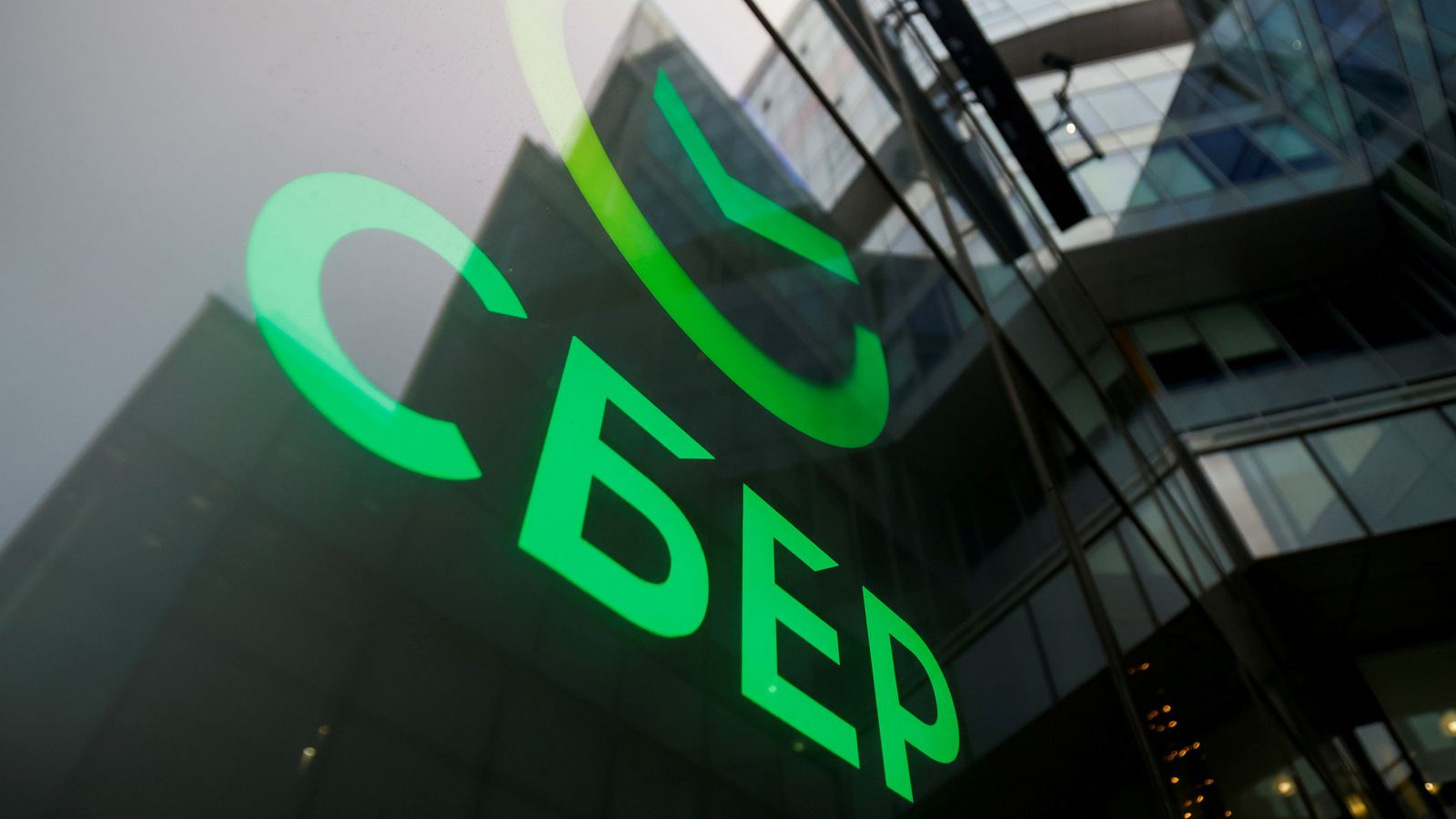The sanctions unveiled over the weekend against the Central Bank of the Russian Federation are by far the most dramatic move to date in the West’s move to cut Russia out of the global financial system.
Russia has accumulated $643bn in reserves during the last eight years, chiefly in euros and gold but also in other currencies including the US dollar, the Japanese yen and sterling, which it hoped would be sufficient to cushion it against the impact of any sanctions imposed on the country.
More than two-thirds of these reserves are estimated to be lodged outside Russia in key financial centres including New York, London and Frankfurt.
Sanctioning the CBR prevents Russia from getting its hands on a lot of those reserves. It adds to the stranglehold on Russia’s economy imposed by locking the country’s main lenders out of SWIFT, the interbank financial telecommunications system, which facilitates cross-border payments among banks.
The effect of all this will be that Russian banks – and, by extension, Russian businesses – will not be able to make or receive payments as they fall due.
It will make trading with Russia almost impossible and, as such, is a recipe for sparking hyper-inflation in Russia and, in all probability, a major recession in the country.
It will certainly, at the very least, result in a major increase in the cost of living for ordinary Russians and shortages of a lot of goods including, potentially, some medicines.
Fund manager Abrdn frustrated in effort to sell Rosneft stake
Unleaded petrol tops 150p a litre amid surging oil prices as Russia invades Ukraine
Ukraine invasion: Russia hikes key interest rate to 20% after rouble slumps to record low
As banks, corporates and individuals scramble to obtain hard currency such as the US dollar or the euro, the rouble has plummeted.
The currency, which has fallen by 65% against the US dollar during the last five years, fell to an all-time low against the greenback this morning.
It now costs around 100 roubles to buy one dollar – just a fortnight ago, only 77 were required. That is the official exchange rate.
Anecdotally, there have been stories of some Russian lenders charging customers up to 150 roubles for a dollar.
Sberbank, the biggest lender in Russia and a bank with which half of all people in the country have an account, kept its branches open all weekend so customers could withdraw roubles and buy dollars as required although there have been reports of queues at some ATMs.
In another indication of the kind of financial crisis that investors expect these measures to create in Russia, the cost of insuring against a Russian debt default has rocketed, with the markets now pricing in a 56% probability of a default.
Responding to the sell-off in the rouble, the CBR has come up with measures aimed at shoring up both the country’s ailing currency and the financial system more broadly.
It has increased its main policy rate from 9.5% to 20% and has increased the range of securities that can be posted as collateral in return for loans.
Market participants have been ordered to refuse requests from their clients to sell Russian securities – a move that could, for example, foil the $1.3tn Norwegian sovereign wealth fund’s plan, announced at the weekend, to liquidate its Russian assets – while the Russian stock market closed today in a further attempt to prevent further falls in Russian equities.
The finance minister, Anton Siluanov, has talked about supporting the capital bases of commercial lenders if necessary – potentially deepening the state’s involvement in the banking system. Moscow is already a majority shareholder in Sberbank and VTB, the country’s second largest lender, while owning some smaller banks outright.
These are huge sanctions – and yet they represent very much a step into the unknown for the West in terms of how this will play out for global financial markets and the extent to which Russian banks are, in the jargon, systemically important.
Only five countries – Afghanistan, Libya, Iran, Venezuela and Syria – have had their central banks sanctioned and this has never before been attempted with a G20 economy.
Accordingly, there have been big falls in the shares of European lenders known to have major exposures to Russia. Raiffeisen, the Austrian lender, is one of the most exposed and its shares have fallen by 14% this morning.
Shares of Societe Generale, one of France’s biggest banks, are down by 10% while ING, the biggest Dutch bank, has seen its shares fall by 10%. Deutsche Bank and Commerzbank, the big two German lenders, are down by 9% and 8% apiece.
The big question is the extent to which Russia can mitigate the impact of these sanctions – and this raises, again, the nature or Russia’s relationship with China.
Beijing recently inked a $117.5bn deal to buy Russian gas over many decades – the deal was reportedly struck following Vladimir Putin’s meeting with Chinese president Xi Jinping at the start of the Winter Olympics – and last week overturned a long ban it has had on Russian wheat and barley imports.
These moves could potentially provide a financial lifeline to Russia, although it is possible Chinese banks themselves will be reluctant to do too many transactions themselves with their Russian counterparts, for fear of being accused of sanctions-busting and being barred from dollar transactions themselves.
Another potential salvation for Russia is the fact that Gazprombank, the lender controlled by state-backed gas producer Gazprom, appears to have been left off the list of Russian banks excluded from SWIFT.
This is because it is instrumental in the buying of Russian gas by western customers.
Yet experts worry the fact that it may still retain some access to SWIFT could result in so-called ‘nesting’, where Russian corporates seek to use its services to obviate the wider lock-out from the network, in order to retain access to the global financial system.
So, while the stick being wielded by the likes of the US, Canada, the EU, the UK and Japan is still a big one, the Kremlin still has some levers to pull. It will only become clear in time the extent to which it can continue accessing, at least in part, the vast reserves it has built up to cushion itself against the impact of sanctions.






















